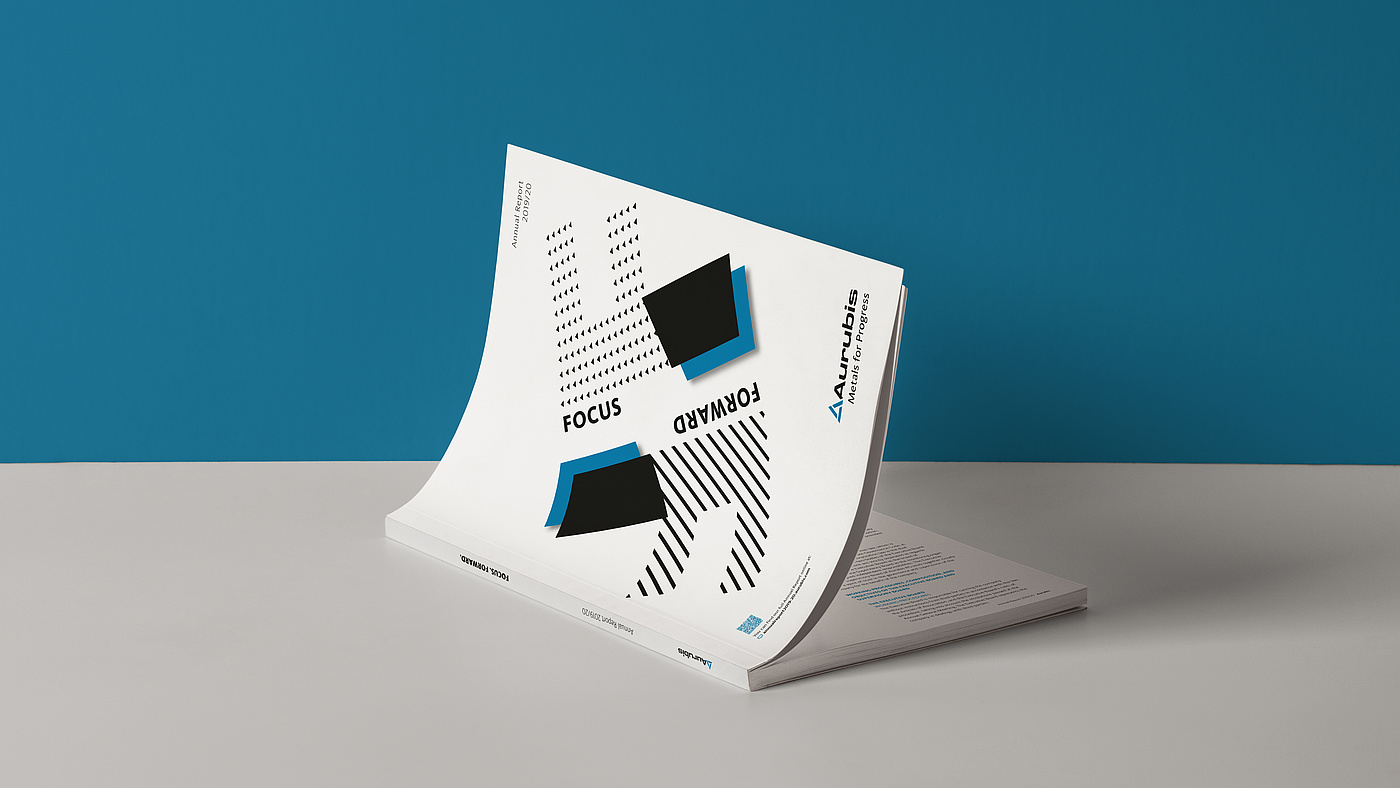Letter from the Executive Board
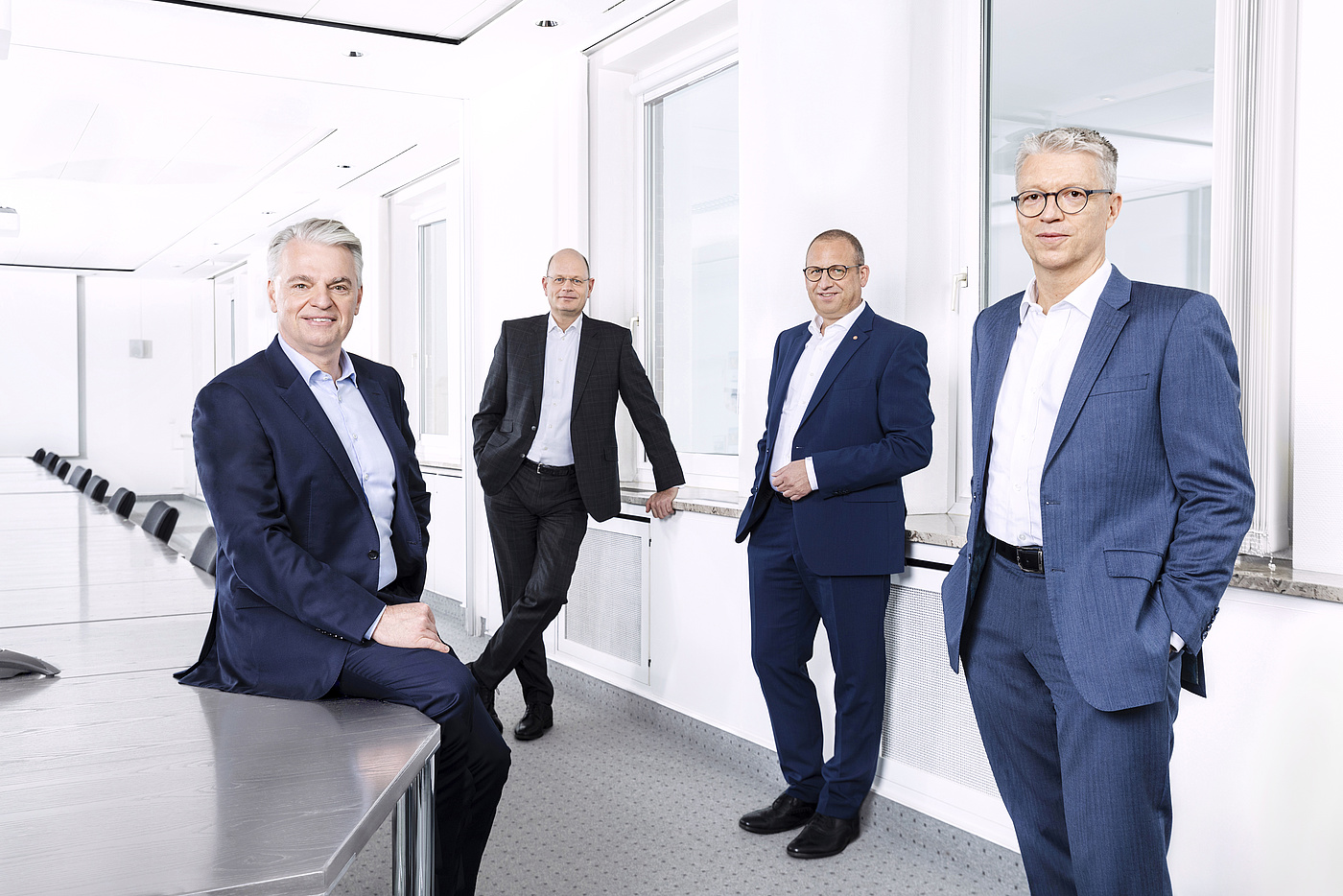
Dear shareholders and friends of the company,
It’s never been so appropriate to say: 2019/20 was an exceptional year. The global pandemic required a great deal from us and served as a stress test for our company. At the same time, it provided us with the opportunity to develop new solutions and try out new things.
The good news first: we made it through the crisis robust during the past fiscal year. In light of the dynamics of the global economy, this can’t be taken for granted. We would like to touch on some of the reasons for our solid operating performance.
The Aurubis employees are at the top of the list. We want to give them our sincerest thanks for both their level-headedness and their extraordinary commitment.
We established extensive conduct and hygiene standards early on, which we regularly adjust to the ever-changing situation. After several difficult months, we can luckily say that our crisis management has proven to be effective. There have been no production limitations in our plants thus far. We produce 24 hours a day, seven days a week, so it’s clear that most of our employees have to be on site to keep the smelters up and running. At the same time, a number of employees had to adjust to working from home, practically overnight.
Our crisis management has proven to be effective. There have been no production limitations in our plants thus far.
Roland Harings, Chief Executive Officer
The fact that we’ve made our way through the crisis well thus far is also thanks to our business model and our global network. Stating it very simply, our business model rests on three main pillars that are influenced by different market cycles: the processing of raw materials from the mining industry, the processing of recycling materials, and product business. This broad position gives us stability and ensures sustainable results. This was evident again during the peak of the pandemic in Europe. Furthermore, we used the opportunity to sell more copper cathodes to China when European customers were temporarily unable to buy them.
A key growth step in 2020 was the acquisition of the Metallo Group. Following the approval from the merger control authorities in the summer, our focus during the reporting year was on integration. The synergy potential has been clearly defined and its implementation is going according to schedule. The merger makes a direct contribution to our multimetal and recycling strategy. With Metallo, we’re growing in metals of the future such as nickel, zinc, and tin. Together, we will process even more complex input materials into valuable metals in the future and continue investing in our processing capabilities.
As far as the circular economy is concerned, we’re therefore playing a key part in sustainably handling raw materials in Europe. We expressly support the European Raw Materials Alliance, an EU initiative, and see great potential for continued economic growth in this exciting, forward-looking area. Because our goal is to become one of the most efficient and sustainable smelter networks in the world.
In July 2020, we completed yet another acquisition with the takeover of azeti GmbH. The company develops an internet-of-things platform that integrates and evaluates production data. The software is able to bring together large volumes of data from highly diverse sources simply and quickly, allowing previously undiscovered optimization potential to be identified and utilized. We will be able to make our processes in metal production and recycling more flexible and efficient with the azeti platform.
Our goal is to become one of the most efficient and sustainable smelter networks in the world.
Dr. Heiko Arnold, Chief Operations Officer
We need this and more to achieve long-term success among the international competition. Because there are global exchange prices for our main product, copper, Aurubis can’t pass on higher energy costs that might be specific to the region to its customers through the product price. If our production costs in Germany and Europe increase disproportionately due to artificially established levies related to the energy transition, this weakens our competitive position compared to the rest of the world. We have to deal with this – together with Berlin and Brussels. At the same time, we’re testing new processes to enable the use of hydrogen in production, pushing forward with innovations for the use of industrial waste heat, and investing in renewable energies. With these developments, we demonstrate how industry can be part of the solution in the energy transition.
We're testing new processes to enable the use of hydrogen in production, pushing forward with innovations for the use of industrial waste heat, and investing in renewable energies.
Dr. Thomas Bünger, Chief Technology Officer
Another factor for staying competitive in the long term is a lean cost base. In fiscal year 2019/20, we developed an efficiency improvement program with a focus on cost reduction for the Hamburg plant and the Corporate Functions. Our goal is to achieve an improvement of at least € 100 million in earnings through the program by fiscal year 2022/23. A number of the program’s measures will make the company leaner, better interconnected, and more digital.
However, Aurubis’ cost reduction program does entail some personnel measures. Rest assured that we, the Executive Board, didn’t make this decision lightly, but it is appropriate and necessary. Because Aurubis should be able to take action from a position of strength and invest in its smelter network in the future as well.
We still intend to sell part of our business – Segment Flat Rolled Products. Although the overall economic conditions provide very little tailwind during the pandemic, we’re still working on strategic options for a future sale of this area of the company.
We want to achieve an
improvement of at least € 100 million in earnings through the cost reduction program by 2022/23.
Rainer Verhoeven, Chief Financial Officer
Let’s take a closer look at our earnings development.
In fiscal year 2019/20, our operating earnings before taxes (EBT) amounted to € 221 million, 15 % higher than in fiscal year 2018/19 and within our forecast, which remained constant throughout the fiscal year. Operating ROCE reached 9.3 % and was therefore above the prior-year level of 8.6 %.
Throughput at our Hamburg and Pirdop sites came to a total of 2.4 million t of copper concentrate during the reporting year. We invested about € 50 million in the Hamburg plant facilities in the first quarter as part of a planned maintenance shutdown, which led to a € 34 million impact on the operating result. Nevertheless, the facilities’ good performance compensated for this effect over the course of the year for the most part. At 1.031 million t, refined copper output was only slightly below the level of the previous year.
The copper scrap supply fluctuated during the year, due in part to the lockdowns in Europe. Paired with intermittent declines in the copper price, this dampened refining charges for copper scrap. Looking at the entire fiscal year 2019/20, however, refining charges for copper scrap had a positive effect on the operating result, as did the very good metal gain in Q4 of the fiscal year. Furthermore, several of the metals in our portfolio achieved record high prices in the fiscal year. We took advantage of this situation by boosting our metal sales.
How will things continue in fiscal year 2020/21?
From an overall economic perspective, a great deal depends on the development of a COVID-19 vaccine, but the pandemic will continue to demand flexibility from our business in fiscal year 2020/21. Our employees’ health will continue to have the highest priority. In terms of the geopolitical situation, the trade conflicts between the US and China are expected to continue – with further uncertainty for Europe and the copper industry.
Aurubis will continue to pursue its strategy and adjust it as needed. We will continue to refine the focus of our multimetal strategy and the targeted expansion of the international recycling business. In 2020, we demonstrated that Aurubis has not only the financial resources but also the capabilities to successfully tread this path together with its employees.
We're starting the new fiscal year with a sense of cautious optimism, with a slightly higher forecast range.
Roland Harings, Chief Executive Officer
We soundly overcame the challenges of the pandemic in fiscal year 2019/20. As a result, we’re starting the new fiscal year with a sense of cautious optimism, with a slightly higher forecast range for operating EBT and a stable forecast range for ROCE compared to the previous year.
Following a challenging year, we would like to thank all of our employees, shareholders, customers, and suppliers for their continued trust in our company. Let’s continue to work on the future of Aurubis together.
Sincerely,
Roland Harings Dr. Heiko Arnold Dr. Thomas Bünger Rainer Verhoeven
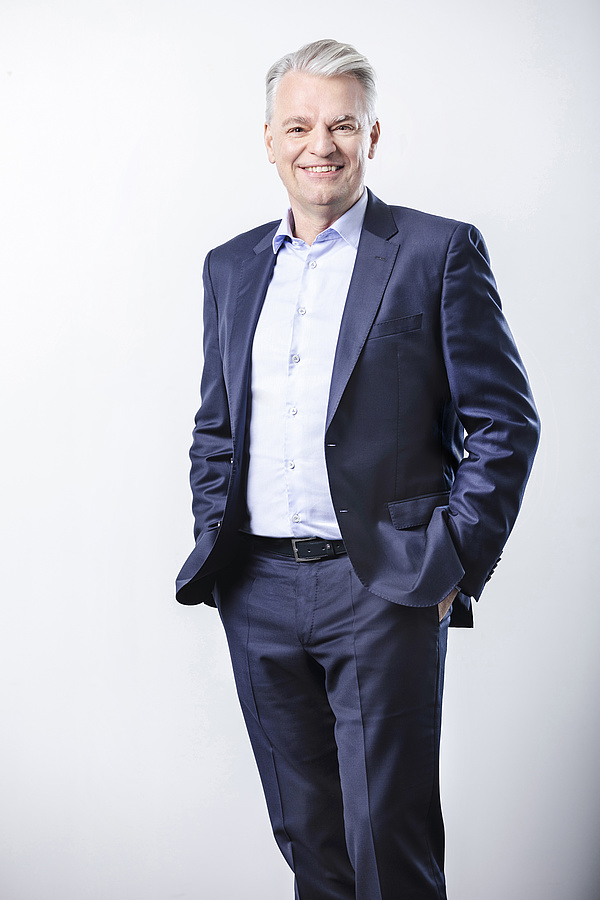
Roland Harings
Chief Executive Officer
After earning his mechanical engineering degree, Roland Harings began his career at Webasto AG. After different international assignments, he switched to Alcan in 1995, where he held different positions. He most recently oversaw automotive sales for Alcan in Europe. Starting in 2005, Mr. Harings managed the integrated aluminum rolling mill of Novelis in Switzerland. He was in charge of Novelis’ global automotive business as of 2010. Prior to his appointment to the Aurubis AG Executive Board, he was CEO/Managing Director of MKM Mansfelder Kupfer und Messing GmbH starting from 2014.
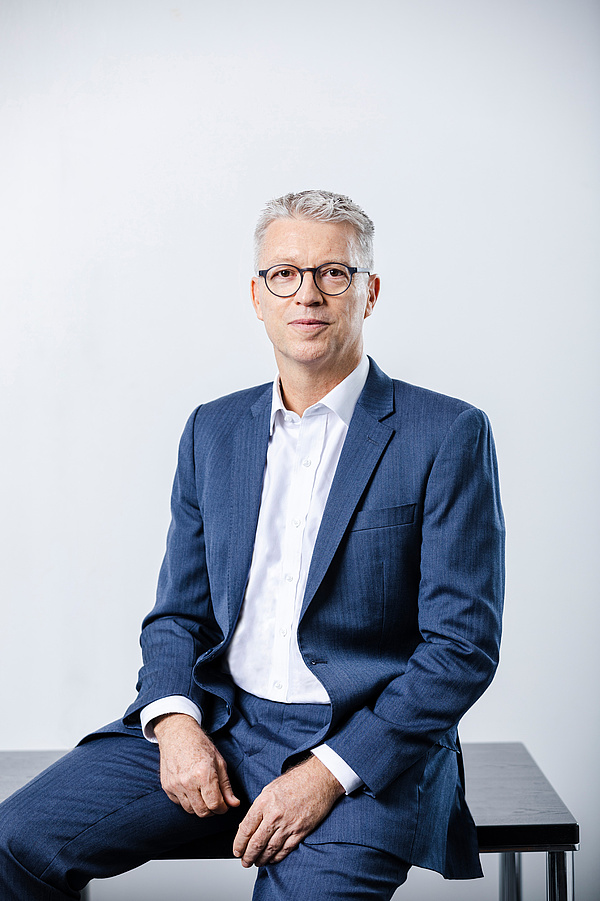
Dr. Heiko Arnold
Chief Operations Officer
Dr. Arnold earned his doctorate in chemistry at the Technical University of Darmstadt. After completing his studies in 1995, he started his career as a research chemist at BASF in Ludwigshafen. He held management positions at international sites there, most recently as Vice President Operations, Technology and Investment Intermediates for the East Asia Headquarters of BASF in Hong Kong. In this function, he was responsible for 11 production plants and five Asian joint venture partners. Prior to being appointed to the Aurubis AG Executive Board, he served as Chief Technology Officer at the Austrian company Lenzing AG and oversaw the technical functions and functional management of the company’s production sites. Dr. Arnold was appointed Chief Operations Officer of Aurubis AG effective August 15, 2020.
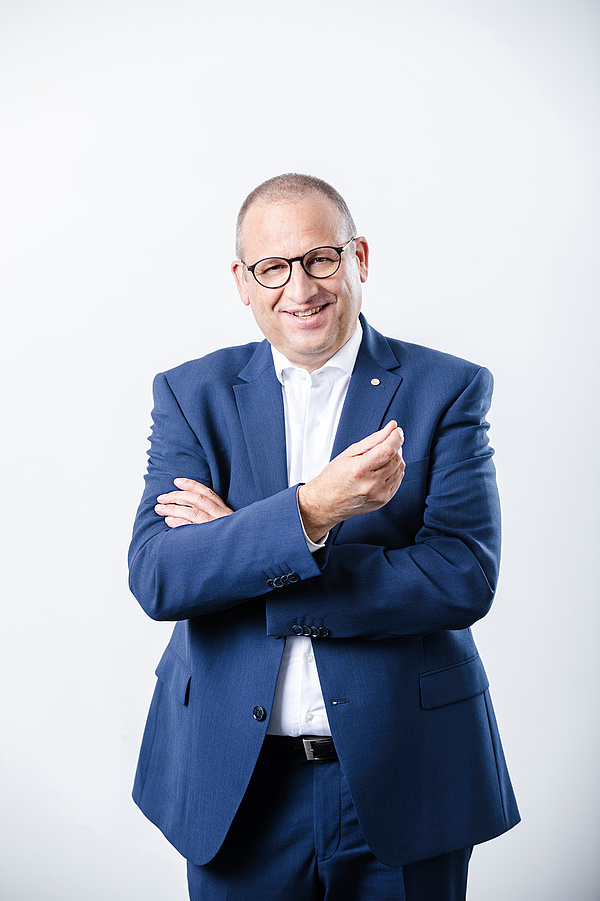
Dr. Thomas Bünger
Chief Technology Officer
Dr. Bünger studied non-ferrous metallurgy. He initially worked as a research fellow at the TU Bergakademie Freiberg and, starting in 1996, as an R&D engineer at Freiberger Compound Materials GmbH. In 2005, Dr. Bünger switched to Norddeutsche Affinerie (Aurubis since 2009), where he started out as a production engineer in the secondary smelter and has held various positions since then, most recently, Senior Vice President Operations. He is also chairman of the Board of Directors at the Bulgarian site.
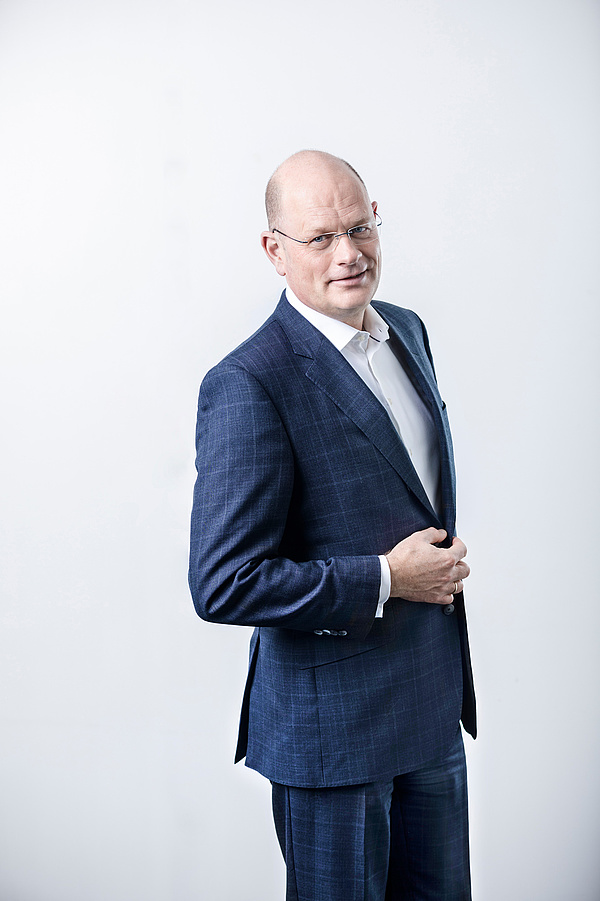
Rainer Verhoeven
Chief Financial Officer
After studying business management, Mr. Verhoeven started his career with what is now thyssenkrupp AG. He initially worked in finance and accounting at company headquarters. Starting in 2005, he held various managerial positions for thyssenkrupp outside of Germany. Before joining Aurubis, Rainer Verhoeven was Chief Financial Officer of thyssenkrupp Electrical Steel GmbH.

